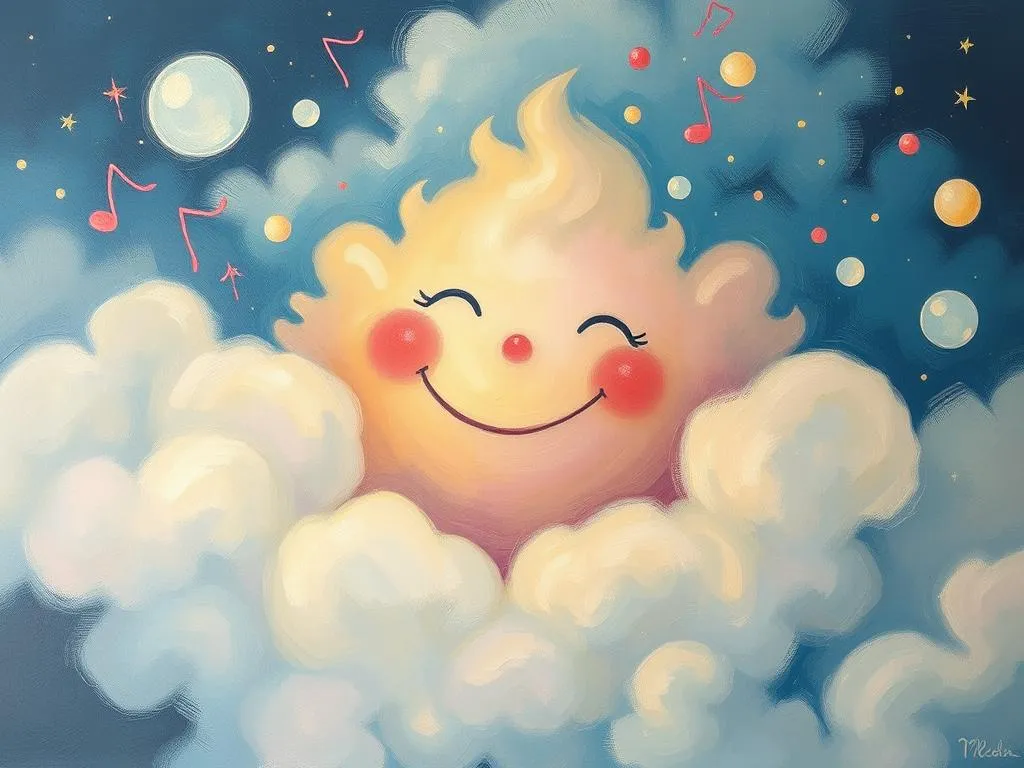
Dreams have always been a captivating subject of inquiry, intertwining the realms of psychology, spirituality, and the human experience. Among the myriad of dreams that people encounter, the motif of being unable to smile stands out as particularly poignant. This dream often evokes feelings of confusion and vulnerability, leaving many to ponder its significance and relevance to their waking lives. Why do we dream of being unable to express joy or happiness? What deeper meanings might this hold? Understanding such dreams can offer valuable insights into our emotional states and personal challenges.
Symbolism and Meaning
The inability to smile in dreams can be a powerful symbol, representing various emotional and psychological states. Smiling itself is typically associated with happiness, contentment, and connection with others. When we dream of being unable to smile, it can suggest an underlying struggle with these very emotions. In a broader sense, this dream may symbolize repression or suppression of feelings, indicating that something within us is stifling our ability to express joy or share our true selves.
Another perspective to consider is the concept of authenticity. A smile is often seen as a mask that we wear to fit into social norms or expectations. Dreaming of being unable to smile may indicate an internal conflict between one’s genuine feelings and the persona they project in daily life. This discrepancy can lead to feelings of isolation and frustration, suggesting that the dreamer might be grappling with the need to be true to themselves amidst external pressures.
Additionally, the inability to smile can be tied to themes of anxiety and depression. These emotional states can manifest in dreams as a physical embodiment of the dreamer’s struggles. The dream might serve as a reminder to the individual about their mental health and the importance of addressing unresolved feelings. In this way, the dream acts as a prompt for self-exploration, urging the dreamer to confront their emotional landscape.
Furthermore, relationships often play a critical role in our ability to express happiness. If a dreamer finds themselves unable to smile in the presence of a loved one, it may reflect underlying tensions or unresolved conflicts within that relationship. This scenario could symbolize a longing for connection or a fear of vulnerability, suggesting that the dreamer might need to address their feelings for a more fulfilling connection.
Key Scenarios and Variations
The context of the dream can drastically alter its interpretation. For instance, if an individual dreams of being unable to smile during a joyful occasion, such as a wedding or a celebration, it may highlight feelings of disconnection or inadequacy in a moment when one is expected to feel elated. This scenario might indicate that the dreamer feels out of place or unable to fully engage with the happiness around them, signaling a need to explore what is holding them back from embracing joy.
Alternatively, dreaming of being unable to smile in a social setting with friends or acquaintances may point to feelings of social anxiety or fear of judgment. This could suggest that the dreamer is struggling with self-esteem or feeling out of sync with their peers. In this context, the dream serves as a mirror reflecting the dreamer’s insecurities and their desire for acceptance.
Another variation might involve the dreamer being unable to smile while interacting with a stranger. This scenario can symbolize unresolved issues or fear of the unknown. It may indicate that the dreamer is grappling with trust issues or a fear of new experiences. This inability to smile can represent a barrier to forming new connections or embracing new opportunities, suggesting a need to reflect on what might be preventing them from moving forward.
Additionally, if the dream occurs in a familiar environment, such as one’s home or workplace, it can indicate that the source of the dreamer’s emotional turmoil is rooted in their daily life. This context may prompt the dreamer to examine their surroundings and relationships more closely, seeking to identify any source of dissatisfaction or emotional pain that needs addressing.
Real-Life Connections and Takeaways
Reflecting on dreams where one is unable to smile can yield significant insights into our waking lives. The first step in this process is self-reflection. Take a moment to consider recent experiences that may have influenced your emotional state. Are there situations or relationships in your life where you feel disconnected or unable to express yourself fully? Engaging in journaling can be a helpful tool for this kind of exploration, allowing you to articulate your feelings and identify patterns in your emotional responses.
It’s also essential to consider the role of mental health. If these dreams are recurring or if they resonate strongly with your waking life, it may be worth examining your emotional well-being. Speaking with a mental health professional can provide valuable support and guidance, especially if you’re navigating feelings of anxiety or depression. Your dreams may be urging you to confront these challenges head-on rather than suppressing them.
Exploring your relationships is another crucial aspect of understanding these dreams. Reflect on your connections with others—do you feel free to express your emotions, or do you often feel the need to wear a facade? Open communication with loved ones can foster deeper connections and allow for a more authentic expression of feelings. If you sense unresolved conflicts, consider addressing them directly to alleviate the emotional burden that may be manifesting in your dreams.
Additionally, consider adopting practices that promote emotional well-being and self-acceptance. Engaging in activities that bring you joy, such as hobbies or spending time with loved ones, can help rekindle your ability to smile—both in dreams and waking life. Mindfulness practices, such as meditation or yoga, can also cultivate a deeper understanding of your emotions, allowing you to navigate feelings of anxiety or sadness more effectively.
Ultimately, the dream of being unable to smile serves as a poignant reminder of the complexities of human emotion. It encourages us to confront our vulnerabilities and seek authenticity in our lives. By reflecting on the dream and its implications, we can uncover valuable insights that inspire personal growth and emotional healing.
In conclusion, dreams of being unable to smile are rich in symbolism and meaning. They challenge us to explore our emotional landscapes and confront the barriers that prevent us from fully embracing joy. By engaging in self-reflection, nurturing our mental health, and fostering authentic connections, we can transform these dreams from mere nighttime experiences into profound opportunities for personal development. Remember that each dream is unique to the individual, so take the time to explore its meaning in the context of your life, and allow it to guide you towards greater self-awareness and fulfillment.







